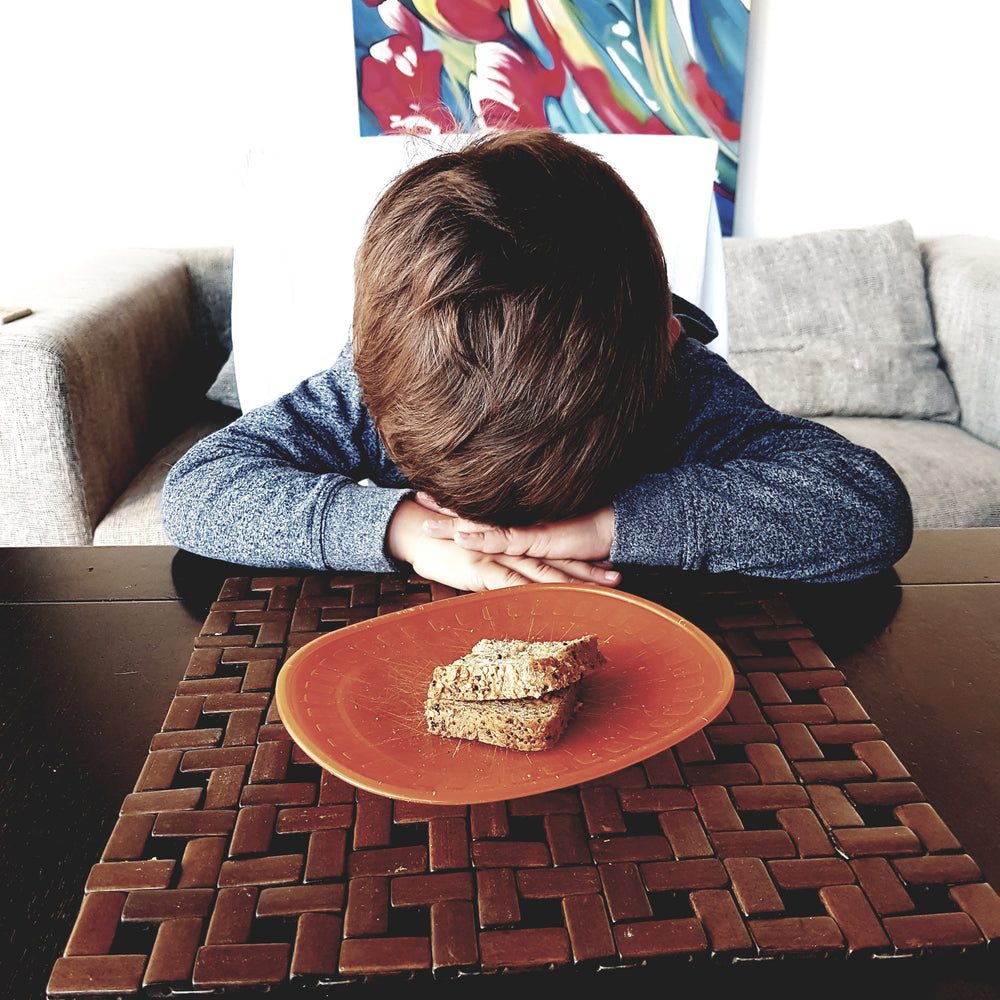Fussy Eaters: How to Manage or Even Prevent a Child Becoming Fussy

Fussy Eating is Normal
A toddler who refuses to try a new food at least half of the time is a fussy eater. Approximately half of all toddlers fit this description, so it is no surprise that food issues are a source of stress for parents. Eight out of 10 Australian parents are concerned about their child's eating habits. One third worry that their child isn't eating enough.
So, have a fussy eater? Don't we all. Seriously, my 4 year old has been on the white food diet for quite some time. He refuses to eat dinner most nights of the week, even when you make him something he asked for. He hates trying new things, even though you know he will love it. Hey, we have some wins. (He is really just lazy and can't be bothered lifting the fork to his mouth and chewing) But it is absolutely a work in progress.
But you know what, we are consistent and we don't get too emotional (although my husband, who does most of the cooking, does get quite upset after he puts so much effort into dinner to be told by a small human "I don't like it " even though they have not put one spec into their mouths..) Some things we do right:
- We eat together as a family at the dinner table, even if he doesn't eat. His dinner is there when/if he gets hungry and 99% of the time he eats it or he goes to bed without.
- He always has something green and either orange or red on his plate that has to be eaten, so I don't stress about him getting enough micronutrients and
- If he doesn't eat anything, I am ok with it. His tummy will tell him soon enough he needs to eat and if the only option is cold potato, meat, broccoli and carrot, well so be it
Don't get me wrong, there is occasionally some incentives to eat, like "you won't get to go camping; because if you won't eat this, you won't be big and strong for camping". This is our latest focus, which is in our books (good for your strength, tummy, eyes etc..). It has really been working! "You won't grow up to be big and strong like daddy".
There is no right or wrong, but there is better and not ideal. I have to say I cringe a little when parents tell me that "their child only wanted white bread and chips and as that was all they ate, that's what they gave them, as they wanted them to have something". You know what? We can do better. Your child will suffer in many ways because you could not step up and be a parent. Kids don't know better, but they do learn quite quickly how to get their own way, if you let them.
Some more tips with managing FUSSY:
- Kids do get hungry eventually. They will eat, there may be some compromise, but a child will not voluntarily let themselves starve, unless they are ill. They are very good at judging their own hunger and fullness.
- Don't delay introducing lumpy foods.
- Keep calm and don't make a fuss of whether your child is eating or not. Instead, concentrate on making mealtimes enjoyable family events. If an occasion is enjoyable, your child will want to repeat it
- Be realistic about the amount of effort you put into making your child's meals. Don't feel resentful when they refuse to eat.
- Don't threaten, nag or yell.
- Don't use lollies, chocolates, biscuits, milk or desserts as bribes.
Trying to AVOID a fussy eater?
Avoiding with some early tips would be great! Here are some below:
- Research suggests that giving your baby a wide variety of lumpy or chewy foods between the ages of six and nine months will broaden their food appreciation and reduce the likelihood of fussy eating later on.
- Parents may need to offer an individual food up to 10 times before the baby will choose to eat it. However, around half of parents only persist two or three times before giving up on that particular food altogether.
- Children learn behaviours from their parents. Research indicates that while 27 per cent of toddlers are fussy eaters, 22 per cent of them have parents who admit to being fussy eaters too.
- If you restrict yourself to a narrow range of foods, your child will notice and copy your wariness. Don't limit your child's food variety to only those foods you prefer. It may be that your child's tastes are different to yours and perhaps you are simply serving them foods they don't happen to like.
- One third of parents worry that their child isn't eating enough. Unless they are ill, a young child will never voluntarily starve themselves.
Is your child getting enough?
If your child seems healthy and energetic, they are eating enough. If you are still concerned, keep an eye on how much food they actually eat over the day (not making an issue of it; observe only). Children tend to graze constantly, rather than do the three meals per day. You may be surprised how those little handfuls and snacks add up. For further reassurance, check your child's growth and weight charts or see your doctor or maternal and child health nurse.

